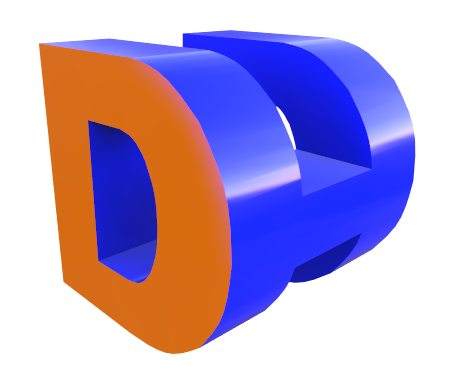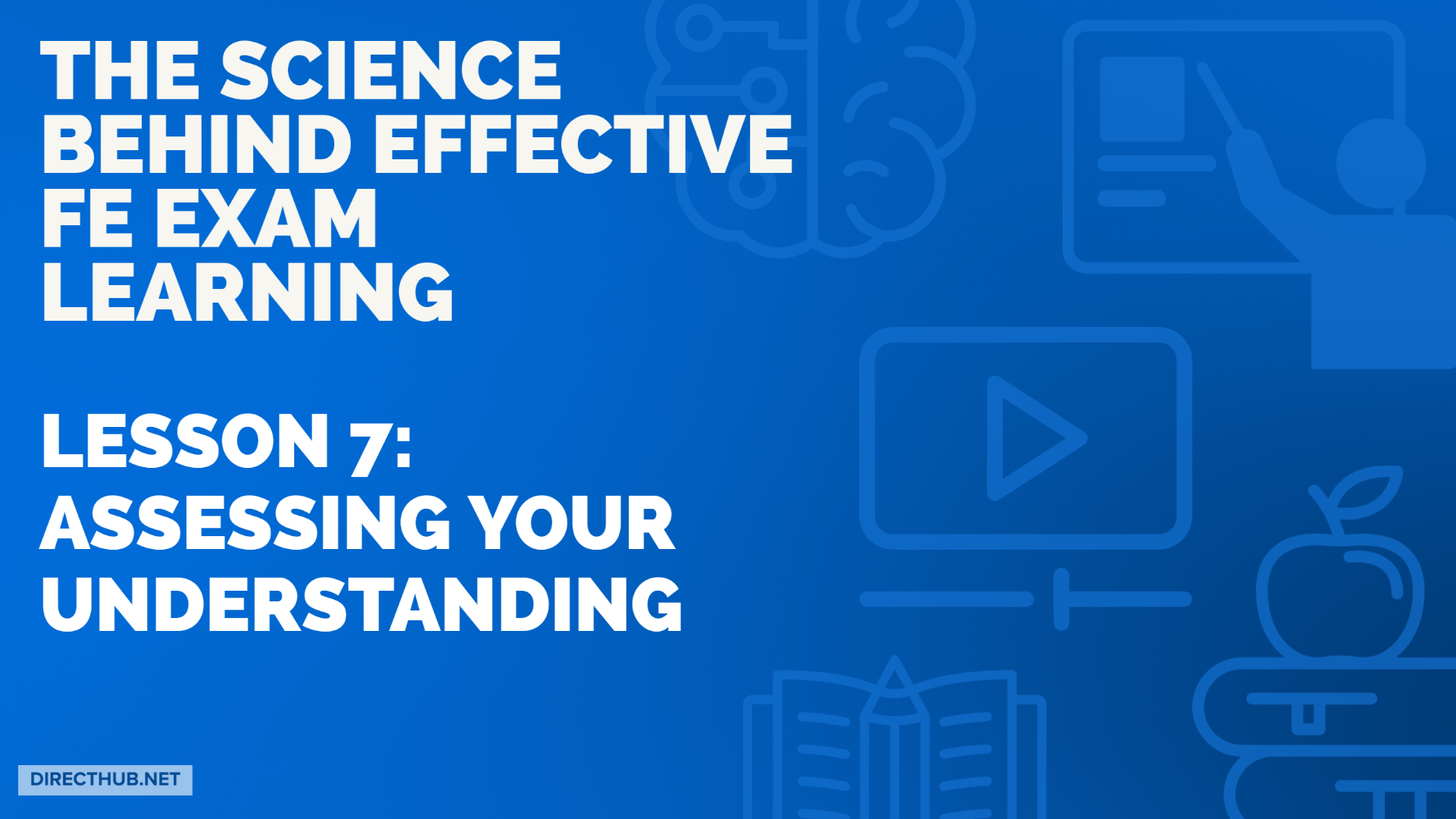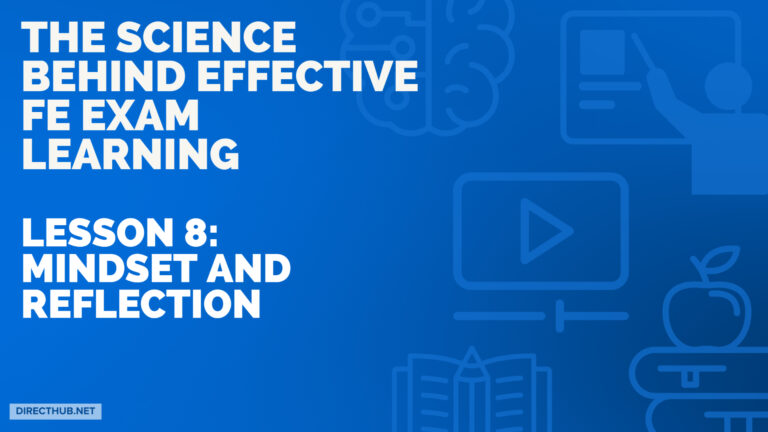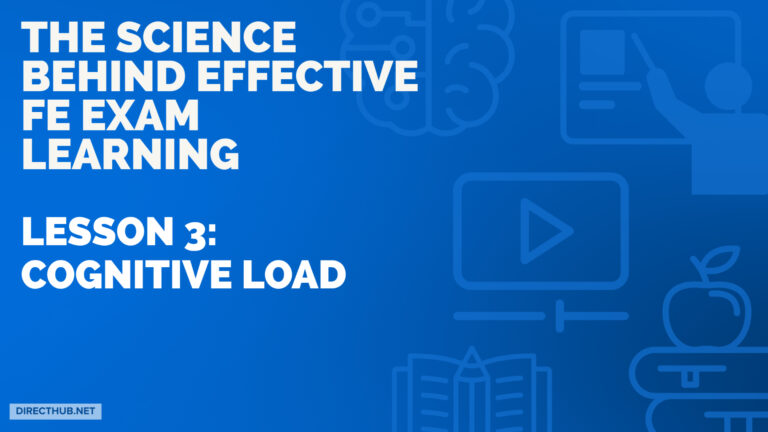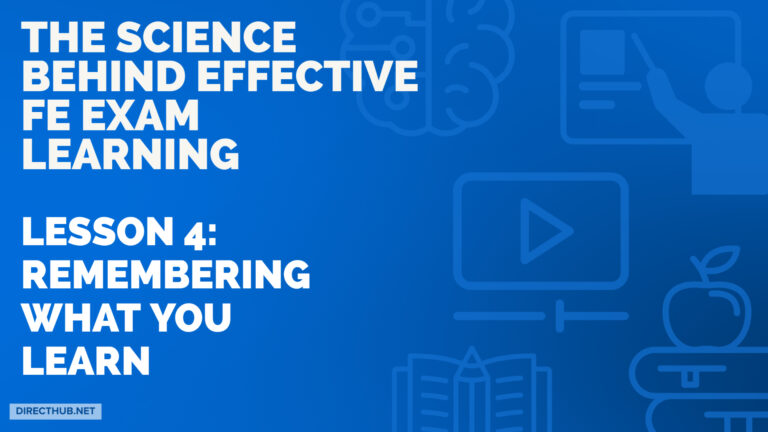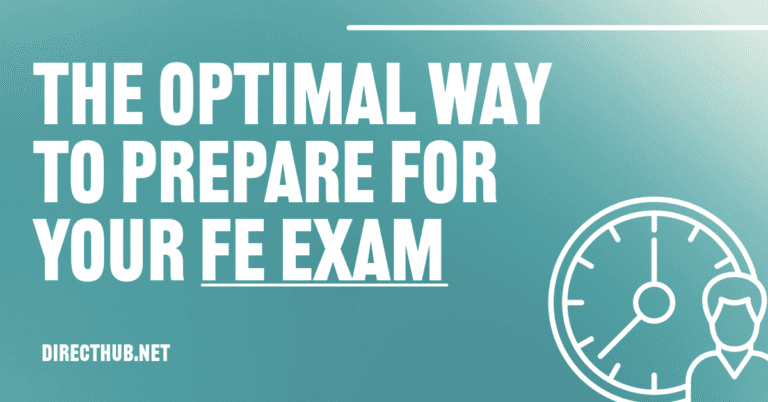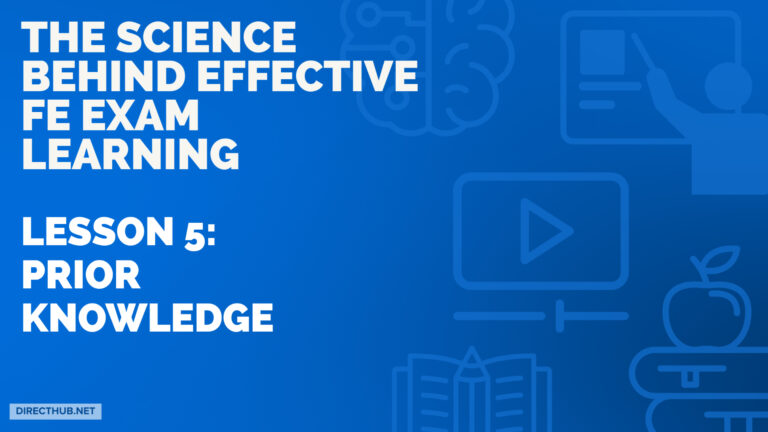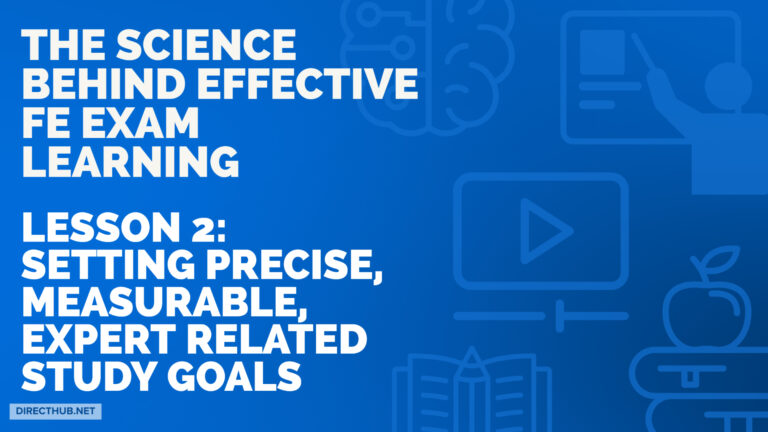Lesson 7: Assessing your FE exam Knowledge
Last lesson, we talked about the right kind of FE exam practice and looked at the importance of using feedback. Today, we will talk about a specific kind of feedback: assessments of what you know.
Effective FE exam learners find the time to frequency and accurately assess what they’ve learned. Like setting those specific learning goals when it comes to studying these FE sections, accurate measurements of what you really know will help you focus on what to do next.
The purpose of an accurate assessment (testing) is to tell you how well you’re learning. These assessments give you “meta-cognitive knowledge,” which just means knowledge about your cognitive abilities (e.g. ‘I have trouble applying my calculator to mathematics FE problems’). These assessments will tell you how well you’re learning. But oftentimes, we can confuse the meta-cognitive knowledge regarding our abilities, especially when we don’t realize what we know (and what we don’t).
Recognizing something is not recalling it
One of the most common mistakes we make when testing ourselves is mistaking recognition for recall.
Recognition is about knowing whether we saw something before. “These steps look familiar” or “It makes sense how they applied that formula”, or “The definition of this engineering term makes sense”. This is called recognition.
Recall is about remembering something without any other hints or prompts. “I can create my own solution to this problem from memory” or “I can draw the correct free body diagram from memory”. The difference between recognition and recall can be profound. Recognizing the Moody diagram is easy, using the Moody diagram is a lot more difficult.
It’s common for students to read over practice problem solutions as a way of studying for their FE exam. This leads students to think they understand the material because it seems familiar to them: They recognize it.
But the FE exam tests a different kind of skill: You will not just need to recognize familiar concepts or equations; you will have to recall and apply these concepts! It’s far better that you practice a skill that you will be tested on when you study. Since the FE exam tests us on recalling concepts, recognizing which formula to use in the FE Handbook, and applying the formulas to arrive at a final answer, we will need to practice recall, recognition, and application.
Knowing How To is the Most Important
Students tend to mistake “knowing that” for “knowing how to”. Beginners will often mistake knowing an equation for knowing how to apply the equation. For example, if we are studying the Kinematics equations, we can find them in the FE Handbook and explain how to apply them – but not be able to perform it ourselves when we get tested.
Get your hands on as many practice questions as you can and practice your “how to” skills!
Also, you may also reach a point where you will do the “easy” problems without putting in a lot of effort. Your problem solving may become so automatic that you can’t explain what you did, at least not without putting in considerable effort. This is all good so long as you’re recognizing the appropriate formulas and applying the right process to get that final answer.
“I Knew It All Along”
Another mistake is when a student thinks they “knew it all along”. This often occurs when we get stuck on a practice problem and immediately refer to the solution and think “Oh yeah, that makes sense”. Again, we mistake recognition for real understanding. It’s better to struggle through your own solution for a bit, then refer to the correct solution to check your work and answer. If you have no idea how to approach the problem, use the solution as a form of guidance to HELP YOU come up with your OWN EXPLANATIONS. Then recreate your own solution to the problem in a way that makes sense to you.
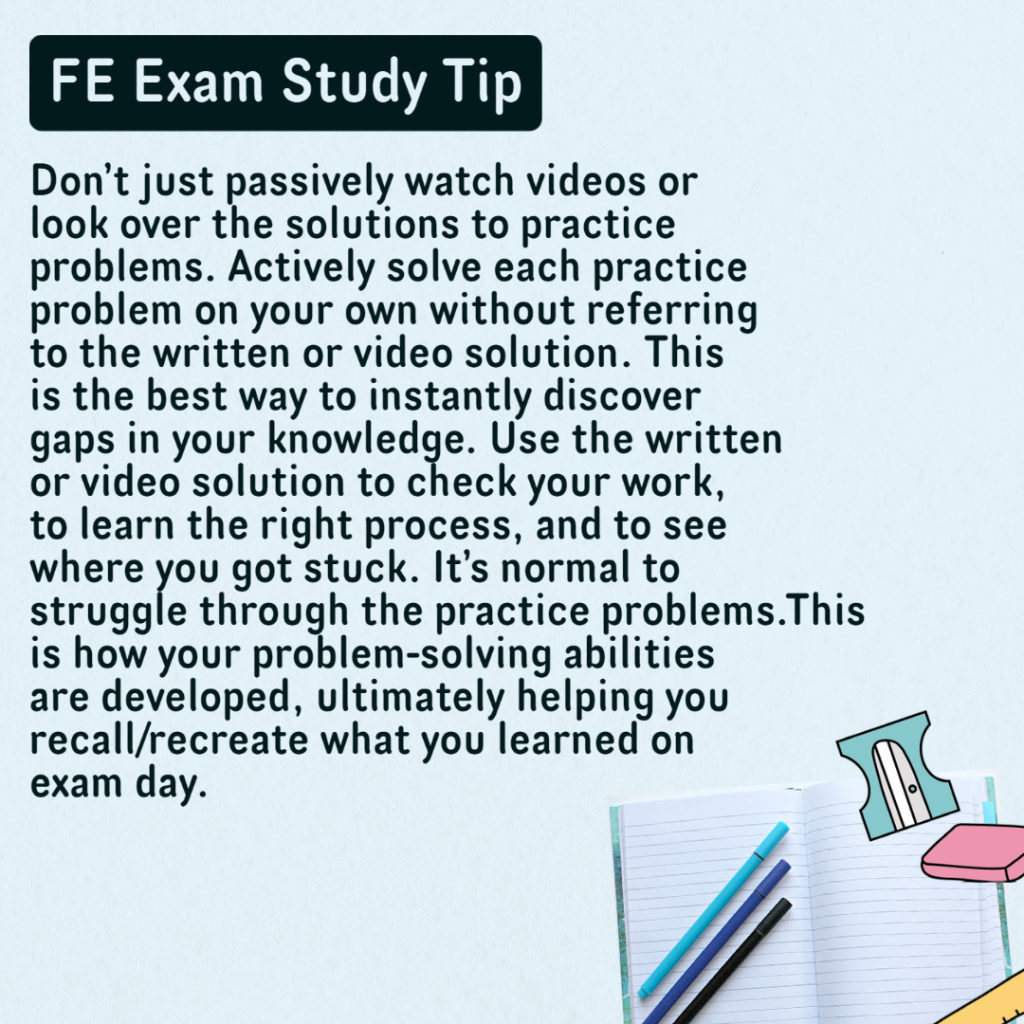
Practice Exams
How do you know when you’re ready to take the FE exam?
The best way to know your readiness for the FE exam is by analyzing the scores you’re getting on full length practice exams. These practice exams will assess not only your understanding but how you react under the time pressure you will experience on exam day.
The NCEES does not publish the passing score. The FE is NOT graded based on a target score. The exam is graded on the total number of correct answers you get out of 100 questions (10 questions are not graded). Your score will be scaled based on the minimum ability level the NCEES sets.
This is a controversial topic. But we will assume that the average passing score is the classic 70%. This means you should aim to get at least 70 out of the 100 questions correct.
You will need to take a look at your last 2-3 full length practice exams, ideally taken 1 month or 2 weeks prior to your exam date. Evaluate each exam, not only for your overall and section scores, but also for the lessons learned. You will need to ask these questions:
- Are you scoring above 70%?
- Are your scores relatively consistent?
- What are your scores for the first section and second section?
- What are your scores for each topic? Use this to review and strengthen your average areas.
- If your scores are not consistent, why not?
- Can you focus for the entire duration of the exam? If not, why? If you just had a bad, just throw out this result and redo the exam.
- Are you spending too much time on certain problems? Know why. Note down these types of problems.
- What time management strategy did you use? How did that go? Did it help you stay in the flow?
- What made you lose the most points? Was it the timing? The concepts? Not knowing what a problem is asking for? Getting flustered early on? Etc, etc.
How Can These Ideas Help with your FE exam prep?
To prepare effectively for this FE exam, you must seek out assessments that test the right skills. The FE Exam isn’t testing recognition as much as recall. Although, recognizing where equations are located in the FE Handbook and recognizing the type of practice problems is an important skill to build, this will come automatically as you’re practicing recalling concepts and applying the right process to solve hundreds of relevant FE problems.
Assessing whether you can explain something without doing it yourself will not give you the feedback you need when it comes to learning the right skills when it comes to the FE exam.
You can avoid the “knew it all along” effect by redoing practice problems in a way that makes sense to you and by diligently using the solutions to check your work.
When you evaluate whether you know something, don’t just rely on how familiar it seems to you: Do practice problems and practice exams to know whether you’re somewhat ready to take your exam.

